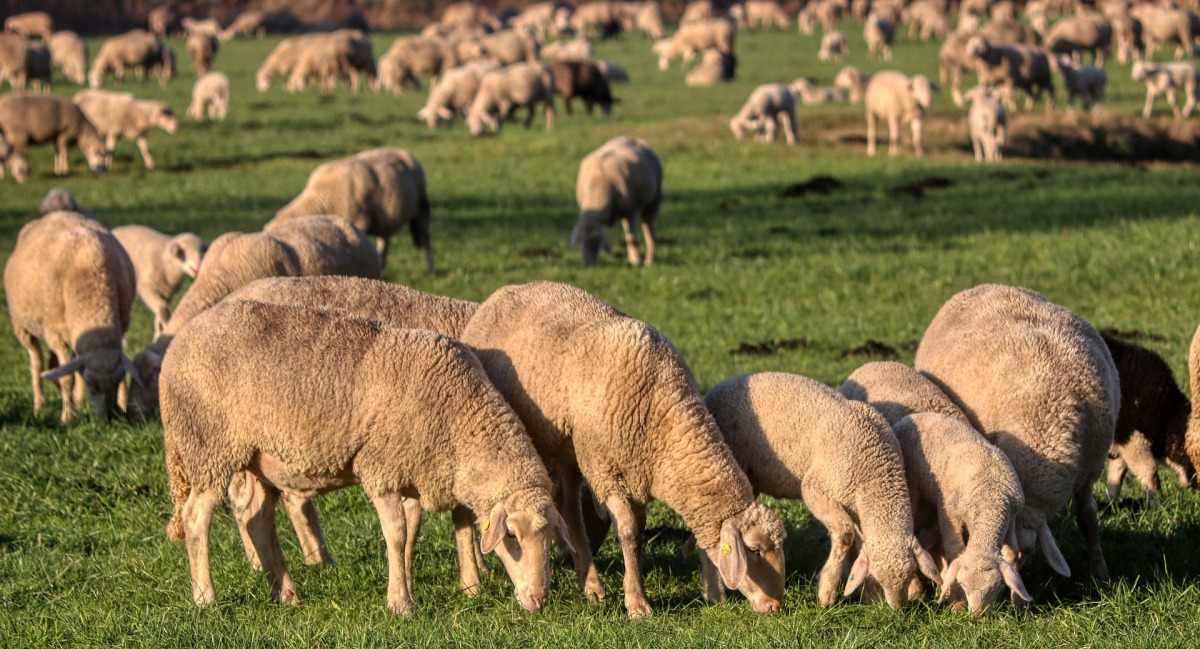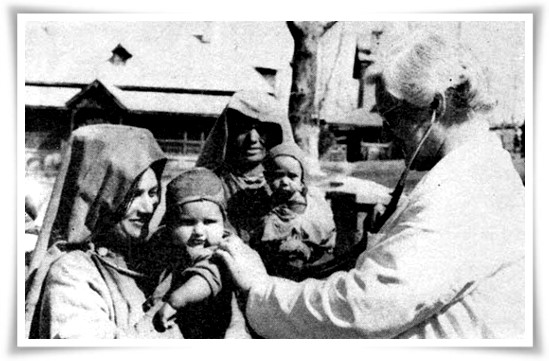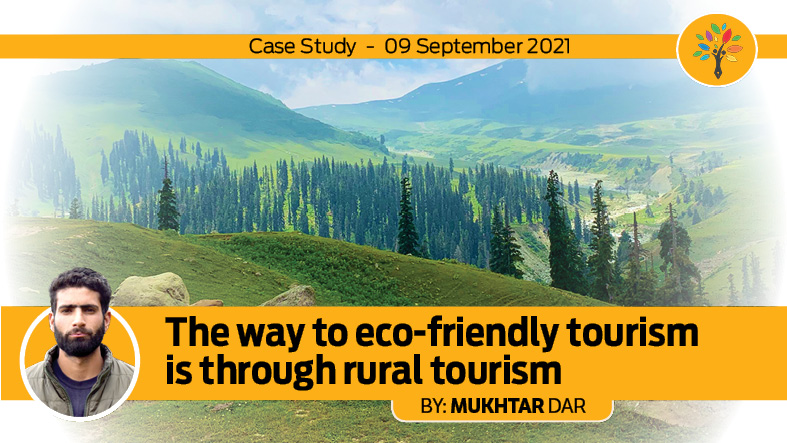Introduction
Livestock rearing is indispensable to rural economies everywhere. J&K too is no exception. In Kashmir, besides the milch cattle, sheep farming has all along been part of farming traditions. But like in Europe and elsewhere, the farmers keep their sheep at home only for a brief period each year, the animals are sent to the high altitude meadows and pastures for the remaining part. Obviously, the farmers themselves cannot do it, for this would impact dozens of other farming chores they have to take care of. So they hire the services of professional shepherds, who do this job for a certain price.
What is peculiar about Kashmir, however, is that this specialised job is carried out by a specific community – known as the Chopans. They come from families who have traditionally been involved in the business of sheep rearing. Unlike sheep farmers, these professional herders of Kashmir do not have any herds of their own. They tend to the other people’s sheep – farmers hand over their animals to them for taking them to grazing grounds up in the mountains where these people spend seven to eight months each year, before returning them down to their original owners. The sums they charge for these services is the only source of their livelihood.
The semi-nomadic Chopan community of Kashmir is integral to the business of sheep farming in Kashmir – particularly the traditional rearing of sheep for meat and wool. But there are many challenges that the pastoralists of Kashmir – the Chopans – are facing, that cast doubts about their long term commitment to the job. Given their contribution to J&K’s economy, it is the responsibility of the government to come up with some welfare programmes and initiatives for this community to ensure Chopas get their due.
What Chopans contribute to sheep farming in Kashmir?
The shepherd commonly called ‘Pohl’ in the Kashmiri language, comes from a specific community of Chopans (also called Wagays). They usually do not own the livestock, but they earn their living by farming the livestock, mostly sheep, of their clients – the farmers or agriculturalists. For ages, they have been serving the Zamindar (farmer) community of Kashmir and contributing immensely to the rural economy of J&K. Their contribution can be estimated by the fact that the J&K stands at 5th position in terms of sheep farming across India. The growth of this sector prominently depends upon the Chopan community – besides of course the Bhakerwals, who are also full-time pastoralists.
However, what differentiates the Bhakerwals from the Chopans besides their ethnicity and language – former being ethnic Gujjars, speaking the same language and latter Kashmiris both in terms of ethnicity and language – is the fact that while Bhakerwals usually own their herds, the Chopans do not. They take care of someone else’s livestock by taking them from plains to mountains amid rainfall and hot scorching weather during seven months of the year till winter approaches.
But for varied reasons this community has not been able to move up the social and economic ladder. This is why given a choice, they would not want to continue in the profession. In fact, an increasing number of their children are opting out and using their time in other vocations.
Understanding their plight
For ages having lived as pastoralists, the community hardly owns their livestock or agricultural lands. They have always lived under the constant shadow of poverty, backwardness and illiteracy. Since this community is entirely engaged in sheep farming, thus in search of facilitating better grazing lands for the livestock, they keep moving from one place to another in the higher reaches. This process of migration keeps Chopans isolated from society – they have to live a nomadic/semi-nomadic life.
Researches reveal that Chopans are experiencing social exclusion and backwardness. The rate of illiteracy in this community is at a whopping 90 percent. Due to their migratory lifestyle, they have no or very little access to health care, education and other services. Then the social stigmas and inferiority tags attached with their job at the social and institutional level, have also ensured their complete social exclusion. Even their patrons from the farmers’ community, who they have served for ages, have ensured that the Chopans are kept at bay in terms of their stakes in the larger village life across communities.
Government neglect
Successive governments in J&K have neither appreciated nor returned the favour of this community’s contributions. For instance, while the similarly placed communities – like the Gujjars and Bakerwals, and (even though they are usually better off for the reasons that they graze their own herds) have grabbed several benefits and opportunities in jobs and education through reservations, no such benefits have accrued to the Chopans in Kashmir.
The inclusion of Gujjars, Bakarwals, Chopans of Ladakh and Gaddies of Himachal Pradesh in the Scheduled Tribe (ST) list in 1991 has ensured reservations for these communities, which has, in turn, provided them access to a plethora of opportunities by way of jobs and other benefits. But the situation of Chopans has remained static. They were not included in the ST list; nor were any administrative measures initiated for their benefit or welfare.
In April 2000, the Legislative Assembly of the erstwhile state of Jammu and Kashmir passed a resolution for granting Schedule Tribe status to the Chopan community of Kashmir. However, two decades have passed but the Chopan community did not receive this legal status.
This section of the Kashmiri society is settled around 15 districts of J&K with a population of approximately 3 lakh people (unofficial data). The lack of political awareness, together with their economic and social backwardness has also failed them in terms of the political representation within the system. Consequently, they have failed to push the successive governments to frame policies that could have empowered them.
Living in the conditions of perennial poverty, backwardness and illiteracy, the burdens of life on the women of this community are no less harsh. They have to perform productive and reproductive roles, and contribute and manage household needs with very paltry resources available to them. Womenfolk of the Chopan community lack exposure; they don’t have access to information and technology, and have limited opportunity to venture out for community-level social participation – as is available to the women of the non-migratory, settled communities. Just imagine, living in the higher reaches with their families, these women have no access to the facilities of healthcare and education; not to speak of basic sanitation.
The continuous hardship of living this way, and of course the negligence by the governments is compelling the Chopan families to leave their profession, for trying to slug it out in other vocations for better economic and social status. This has made the future of Chopans and pastoralism very uncertain in Kashmir.
It will also have devastating effects on the environment and ecology. For centuries, these Chopans have been carrying out eco-friendly pastoral farming in the eco-fragile areas of Kashmir’s high altitudes. They have possessed and preserved and also passed on across their generations the knowledge about the proper management of herds without affecting wildlife, forestry and fragile alpines.
New entrants in this field (as is the new trend with people from the cities buying lands in the countryside to set up modern sheep farms) — may not be familiar with the knowledge and expertise of the Chopans. Consequently, they can damage the ecosystem of these beautiful far-off places.
Recommendations
Government should profile the working conditions, education and economic status of the Chopan community. On that basis, it should come up with policy initiatives and interventions that can be implemented in empowering the Chopan community. The initiatives should ensure equal access and special representation of Chopans for their development.
As this section of society is engaged in sheep farming, the government should provide assistance to make them entrepreneurs within their own profession. They can be made livestock owners, dairy farm entrepreneurs. Rural development departments could play an active role in providing them such opportunities through different programmes.
The women of Chopans have more burdens on their shoulders and they have fewer opportunities to venture out to explore different opportunities. The National Rural Livelihood Mission has a role to play. Through the Self Help Group scheme, special incentives can be provided to Chopan women that can provide jobs and can make them successful entrepreneurs.
The tourism department can also play a role by turning the Chopan youth into trekking guides as they have sound knowledge about the far-flung meadows in the hills and mountains of Kashmir. They also know how to deal with wild animals and how to survive in such places without impacting the environment.
Government or non-government actors have not shown much interest in studying the living and working conditions of the Chopans. For instance, there is no official data that would give us their exact population. It has also restricted the scope of their progress and development. Detailed studies should be carried out about the community – this is needed for any interventions for their welfare.
References
http://www.jkslbc.com/Livestock.php#:~:text=Kashmir%20region%20shares%2047.42%25%20%2874.994%20lakh%29%20of%20the,lakhs%20goats%2C%2035.496%20lakhs%20fowls%2C%205.269%20lakhs%20ducks.largely due to discrimination at social and institutional level.
https://papers.ssrn.com/sol3/papers.cfm?abstract_id=1631253
https://www.google.com/url?sa=t&source=web&rct=j&url=https://kashmirobserver.net/2021/09/24/21-years-later-chopans-of-kashmir-still-await-st-status/&ved=2ahUKEwihyKHN6Ib1AhVD73MBHVBUB5YQFnoECAYQAQ&usg=AOvVaw0ii0_ehxhGaQSb4M5_qvLz
https://www.google.com/url?sa=t&source=web&rct=j&url=https://en.gaonconnection.com/left-out-in-the-cold-the-chopan-shepherds-of-jammu-kashmir-are-without-identity-or-many-rights/&ved=2ahUKEwihyKHN6Ib1AhVD73MBHVBUB5YQFnoECBQQAQ&usg=AOvVaw2a0hSSx-cSiMvGT7oOPgL2
https://www.google.com/url?sa=t&source=web&rct=j&url=https://www.greaterkashmir.com/amp/story/todays-paper/part-i-chopans-a-disadvantaged-community&ved=2ahUKEwihyKHN6Ib1AhVD73MBHVBUB5YQFnoECBoQAQ&usg=AOvVaw3avMHIa0XUCwPfwjxhrphL
https://www.google.com/url?sa=t&source=web&rct=j&url=https://www.greaterkashmir.com/amp/story/todays-paper/chopan-body-also-demands-benefits-of-fra-st-status&ved=2ahUKEwihyKHN6Ib1AhVD73MBHVBUB5YQFnoECCQQAQ&usg=AOvVaw0-iiHCtibHDaA95rREaM6f






Leave a Reply
You must belogged in to post a comment.